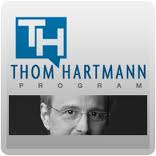 If you want an example of a country that’s actually taking action against corporate corruption, look no further than the People’s Republic of China. Seriously, I’m not kidding.
If you want an example of a country that’s actually taking action against corporate corruption, look no further than the People’s Republic of China. Seriously, I’m not kidding.
Since President Xi Jinping took power in 2012, his government has unleashed all hell on the leadership of China’s coal and oil industry. It has jailed powerful executives and, at the same time, unveiled a slew of new rules aimed at combating pollution, which remains one of that country’s biggest problems. The data shows that this so-called “war on corruption” has been a success: In 2014, China’s coal use and carbon emissions declined for the first time in more than a decade.
Now, there are questions about the real motive behind China’s crackdown on corporate criminals - it probably has just as much to do with consolidating power as it does fighting corruption - but there’s still a lot we here in America could learn from what President Xi Jinping is doing across the Pacific. That’s because we’re a country run by oligarchs who operate with total and absolute impunity.
Don’t believe me?
Consider this: It’s now been more than six years since the Crash of 2008 and the Justice Department has still yet to prosecute any head of any major bank for what was arguably the biggest financial scandal of all time.
This isn't likely to change anytime soon, either. Attorney General Eric Holder basically admitted a few years ago that some banks are “too big to jail” and U.S. Attorney Loretta Lynch, our likely next Attorney General, has a checkered history when it comes to fighting financial crime.
Oh, and as if all that wasn’t bad enough, much of what government has done to hold the banksters accountable for their actions during the financial crisis has actually helped those banksters out. Most of the $13 billion settlement the Justice Department reached with JPMorgan back in 2013, for example, was tax deductible.
With this recent history in mind, China’s crackdown on corporate criminals and pollution looks all the more impressive.
And while part of China’s success has to do with the fact that it’s an authoritarian regime that doesn't have to answer to the checks and balances of a democracy, it’s important to remember that just a little over a century ago America - yes, America - was the scene of a great corporate crackdown of its own. The man who led this crackdown was none other than the Bull Moose himself, Teddy Roosevelt.
After he became President in 1901, Teddy, to put it bluntly, took the robber barons to the woodshed.
At the time, billionaire industrialists like John D. Rockefeller and Andrew Carnegie were as powerful as monarchs, but Teddy used the Sherman Antitrust Act to break up their monopolies and once again open up the economy to real competition. He also pushed through the Hepburn Act to put a limit on the outrageous railroad rates that were breaking the bank of small businessmen all over the country and, unlike previous presidents, forced corporations to actually sit down and talk with unions.
All of these actions were part of “The Square Deal,” the first real modern attempt to take on the economic royalists, and they helped take American out of the Gilded Age and into the Progressive Era.
Today, we’re in need of a new Square Deal. Ever since Reagan stopped enforcing the Sherman Antitrust Act in 1981, big businesses, especially big banks, have ballooned in size. In fact, the big banks are even bigger now than they were before the crash.
The success of China’s “war on corruption” shows that it is possible to take on entrenched corporate power and win. But we didn't need an authoritarian regime to tell us that. Our own history and the history of one of our greatest presidents, the progressive Republican Teddy Roosevelt, is proof that democracies can also take on the oligarchs and win.
All we need to do is start enforcing the Sherman Antitrust Act. It’s as simple as that.
Lessons from China About Fighting Oligarchs
By Thom Hartmann A...



